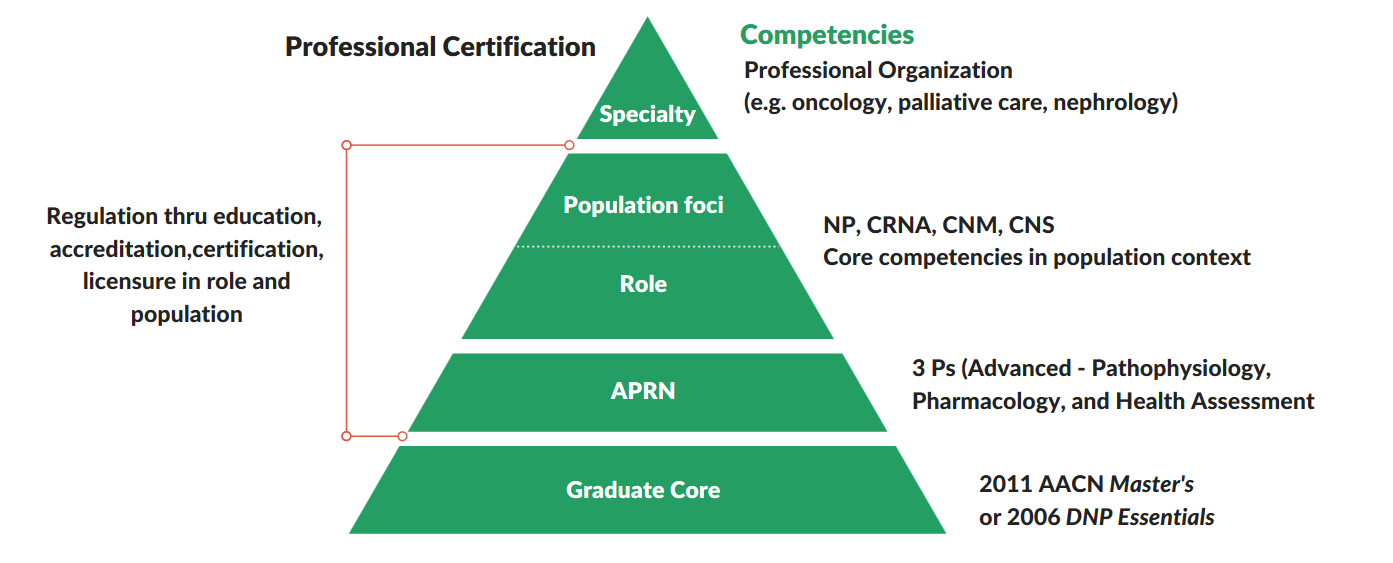Statement of APRN - Advanced Practice Registered Nurse (APRN) practice, describes the APRN regulatory model, identifies the titles to be used, defines specialty, describes the emergence of new roles and population foci, and presents strategies for implementation. This content is discussed in the context of the four APRN roles: certified registered nurse anesthetist (CRNA), certified nurse-midwife (CNM), clinical nurse specialist (CNS), and certified nurse practitioner (CNP).

The production of these reports represents a body of work which AACN has collaborated and participated on with other professional associations. These curriculum guidelines and standards produced by AACN and other authorities have been used by nursing deans and faculty nationwide in designing curricula used to prepare highly qualified nurses for a health system in continual change.
Clinical Nurse Specialist Programs
Core Practice Doctorate Clinical Nurse Specialist (CNS) Competencies (2009)
Criteria for the Evaluation of Clinical Nurse Specialist Master’s, Practice Doctorate, and Post-Graduate Certificate Educational Programs (2011)
Statement on Clinical Nurse Specialist Practice and Education (2019)
Nurse Practitioner Programs
Standards for Quality Nurse Practitioner Education, 6th Edition (2022)
Adult-Gerontology Primary Care Nurse Practitioner Competencies (2016)
View 2010 Version
Adult-Gerontology Acute Care Nurse Practitioner Competencies (2012)
Criteria for Evaluation of Nurse Practitioner Programs (2016)
View 2002, 2008, 2012 Versions
Curriculum Survey on Master’s Level Nurse Practitioner Programs (2001)
Interprofessional Oral Health Faculty Tool Kit for Primary Care Nurse Practitioner and Midwifery Programs
Nurse Practitioner Core Competencies Content (2014)
Population-focused Nurse Practitioner Competencies (2013)
Psychiatric-Mental Health Nurse Practitioner Competencies (2013)